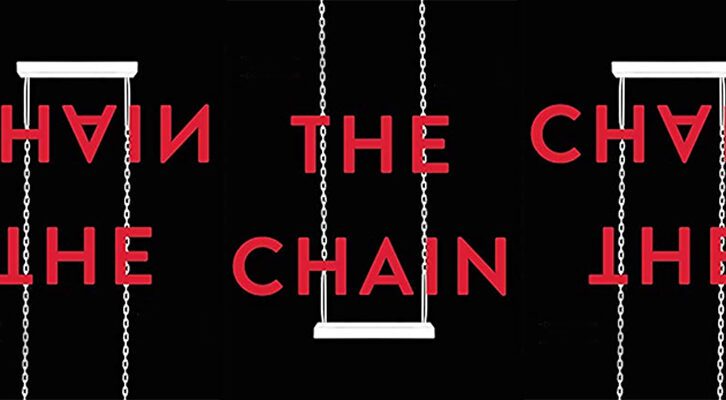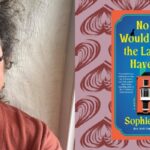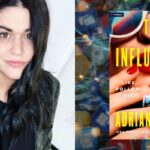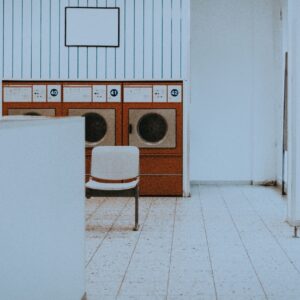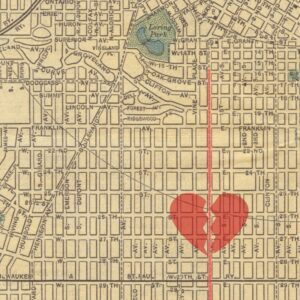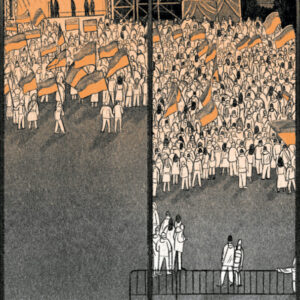
Natalie Baszile Wrote the Book She Wanted to Read: Queen Sugar
Misan Sagay in Conversation with the Author of One of Oprah's Favorite Books
I recently had the immense pleasure of catching up with Natalie Baszile, the author of the best selling novel Queen Sugar, in San Francisco. Queen Sugar is a story of exile and return. Of blood and sweat and love and hate, of family and the soil of a Louisiana sugar cane farm. A Southern novel for our times, to be sure, but also an American story—of risk and reinvention, struggle and triumph. A novel rooted in the past with an eye on the future. It’s Natalie’s first published book and the outcome reads like a fairy tale of success most can only dream of.
Queen Sugar was adapted by Ava DuVernay for television and produced by Oprah Winfrey. It is now an acclaimed TV series, presently showing on OWN. Queen Sugar was a ten-year labor of love for Natalie and we discussed her journey as a writer, and the choices that led her here.
Misan Sagay: If you’re a writer worth your salt, you ask, “Where is the gap? I’m not looking to do what’s been done before.” What gap did you set out to fill with Queen Sugar?
Natalie Baszile: I really feel like I came of age with people whose experience was more integrated; people who felt comfortable moving in all circles and in all walks of life. They are just ordinary, just trying to do the best by their children and keep their marriages together without a lot of bells and whistles and fireworks—just the ordinary human experience. I wasn’t seeing that on paper. I saw a very narrow, defensive, almost isolated portrayal, and I kept thinking, “Where are the books that reflect my experience?” I wrote for other people I knew who felt comfortable in their own skin.
MS: Where does your urge to write come from?
NB: Writing is the way I see the world. I always see the world through the lens of narrative and story—always. Most of the time when I’m going about my day—not at the desk—things just come to me as bubbles of narrative and I think to myself, “oh wouldn’t that be interesting for a character or I wonder who that person is?” That’s the way I relate to the world. I think it’s my curiosity about people and it’s also a feeling I have of being deeply connected to people and their humanity and wanting to know their stories.
MS: When did you start writing and when did you start writing Queen Sugar?
NB: I started writing when I was in college. I was an English major. I took a course in African-American literature and I thought, “I want to be part of this.” Then there was a moment when I was getting my masters when I thought, “I don’t want to spend my life writing third-hand analysis of someone’s original text. I want to write the original text.” That’s when I decided to start writing.
After I graduated from UCLA I went back to visit one of my former professors and I told him I had an idea for a novel and he told me to be prepared for a lot of rejection. I understood that he was trying to prepare me and protect me, but I told him that when I get to that point where I’m actually getting rejection letters, that’s a moment to celebrate because it means I’ve written the novel and it’s out there. I’m in the game. So I started on Queen Sugar in the late 90s.
MS: So tell me about your writing process?
NB: I remember coming across some quote by Toni Morrison where she said her two priorities in life were writing good books and raising good children. I remember reading that and thinking, ok. It was very clarifying for me. It made life very simple. It meant that I would devote my time to raising good children; not living their lives but rather, supporting them in who they were going to be. And whatever time I wasn’t devoting to that, all of my other time and energy would go into writing and reading and being a student of the written word.
So during the school year when the girls were in school, I’d take them to the bus stop, they’d get on the bus, and I’d get to work. Those golden hours in the heart of the day when no one was home and no one was knocking on the door. That was the way I got this book done.
MS: Why this story of Queen Sugar? We know about the massive migration North but in many ways, this book completed the circle, the return. Why did you choose to look at that narrative?
NB: First, that’s part of my family story. My dad left Louisiana in the 1950s, in the last wave of the Great Migration, and came to California. Even on my mother’s side, her family left Alabama and South Carolina and because of the different rail lines, they ended up in Detroit and worked in Henry Ford’s factory. I heard those stories, and what was peculiar to me was exactly what you’re saying—this phenomenon of reverse migration. People of my generation, my parent’s generation and actually even younger people going back to the south in the last ten years. It was a very curious thing to hear because the south has such a complicated history. The question became, Why would you want to go back to this place that is difficult and fraught and backwards. What would call you back? The conclusion that I came to was that there is a very deep connection that African Americans feel to the physical place, the land. They have a very intimate experience with the actual soil. That intrigued me. My dad was not romantic about the south at all. He loved his family who was still there but he had no interest in moving back.
MS: And yet the stories were there, somewhere.
NB: I grew up in a suburb of Los Angeles that was physically beautiful, but culturally. . . there wasn’t that much going on. When I started going back to Louisiana as a young adult, first with my dad when he’d go home to visit his family once a year, and then when I started writing, I was surprised by how relieved I felt to be able to claim that part of my identity that had been missing. To be able to connect with southern history in all of its complexity and to know that my family had survived it. There was also something inexplicable to me—my family traditions, their sense of family that my father had in many ways rejected and moved away from. Between that and the physical experience of the land, I understood why people would want to move back. There’s a lot about the south that I struggle with. It is a welcoming place that has changed in some ways, but in some ways it has not changed. But this is what literature does. You can explore all of these questions. You can have your characters confront all of these issues and moments when they have to work out and ponder these questions.
MS: When did it first begin to garner interest? How did you go from you with a pen to you with an agent and then a publisher?
NB: I learned a lesson early on. I had just started writing the novel; a literary agent invited me to submit the first hundred pages of the novel. Well, I didn’t have one hundred pages; I had maybe forty pages. So I rushed home I took my oldest daughter to my in-laws, and typed as frantically as I could. By the end of eight weeks, I had one hundred pages but they were awful. I sent them to the agent, and of course he rejected them because I’d been so frantic. What I learned was that I couldn’t afford to squander another opportunity. I decided to put my head down and write the very best book I could write.
When I thought the book was ready, ten years later, I sent the book out to a small handful of agents. But 2009 turned out to be The. Worst. Summer. Of. My. Life. Three of the agents I sent the book to didn’t even bother to acknowledge receiving the manuscript, even though friends had made introductions. Two agents read the book and were very complimentary although they ultimately rejected the manuscript. At that point I thought, well, maybe this isn’t going to happen for me. I’d invested ten years of my life into trying to craft the story. I was devastated. I had to have a real conversation with myself.
That summer a friend came to visit. I was so down. Even my girls were worried about me. My friend said to me, “Natalie, you know you’re not this book, right?” But my sense of self, my identity as a writer, was entirely bound up in the book. I had to recommit myself, not to the glamor of writing, because that wasn’t guaranteed or assured. But what became clear to me that summer was that I loved the process of telling the story. I loved being engaged in the work.
MS: How wonderful to find that.
NB: I realized I could go back in and that I wasn’t ready to put this novel in the drawer. I wasn’t ready to surrender and give up. There was something in the story I believed in. That was an important realization because it helped me release on the fantasy. I understood what being creative meant to me. That’s what I took away from that summer, that I actually had more juice than I thought I had.
MS: So you then went back, discovered you had more juice, and brought the juice. How long did the second phase take after the first round of revisions?
NB: Another two years of revision.
MS: And then?
NB: I sent the manuscript back to the agents who said I could resubmit. I also sent the manuscript to another agent who read the novel in 24 hours, loved it, and called to say she wanted to represent me.
MS: Applause! How did the story evolve? Was it always a family story about Charley Bordelon?
NB: It was always a family story with Charley going back to the south.
MS: What was the inspiration for Charley? How much of her is you?
NB: Charley appeared as a character pretty soon after I started writing Queen Sugar. Just like Ralph Angel, she sort of appeared fully formed. I wanted to have a character in the book who was a mother, a daughter, a woman who’d lived long enough to have been battered around by life a bit so I could explore what it meant to be a woman of a certain age. Like all the other characters, she evolved over time.
There are definitely parts of Charley that are informed by my personality and world view. She’s stubborn, she works hard, she wants to be a good parent; she’s trying to figure out how she’s going to leave her mark on the world. She has a big heart. But in creating her, I had to allow her to do things and say things I might think but might never say. In other words, I had to allow her to be less well-mannered, less interested in pleasing people. In fact, in order to give her some agency in the book, in order to make her just be a static observer, I had to allow her to be messy. She had to make mistakes—which meant I had to allow myself to be messier and make mistakes. Perfect characters don’t make for interesting characters. I suppose the same can be said for people. Perfect people—people who always say or do the right thing—aren’t interesting either.
MS: Where did the character of Ralph Angel—a single father we meet committing a robbery with his child in the car—come from. How did he evolve?
NB: Ralph Angel was actually the first character I created. Years before I began to write the novel, I wrote a short story about a father and son driving around Los Angeles. They were essentially homeless having been tossed out of an SRO hotel and were living in their car. I wrote the story and put it away. A few years later, my grandmother passed away. We attended her funeral in south Louisiana, and as I sat in the family pew during the service, I had an opportunity to watch a variety of townspeople pass in front of us to pay their respects. They were a fascinating mix of people—farmers and preachers, old people and young people—and I realized this is the town from which my father and son had come. This was their home. When I got back to Los Angeles, I pulled out the story and changed it so that by the end, they were on their way back to Louisiana. The novel, and Ralph Angel’s character grew from there.
As far as Ralph Angel’s name is concerned, I heard it years before I started writing the novel or even the short story and jotted it down. I knew instantly, that he would be a character in a future story. I just had to wait to meet him.
MS: How then, did the novel get to such elevated heights? How did it get to Oprah?
NB: It got to Oprah because I went to Hedgebrook, the women writer’s retreat. One evening after dinner, my friend, the novelist Sarah Manyika suggested I read part of a chapter from Queen Sugar with my fellow residents. It just so happened that one of the other residents was Leigh Haber, Oprah’s book editor for the magazine. She asked me to have my editor send her an advance galley when they were ready. I did, she read the book and loved it. She passed the novel along to the people at Harpo because she thought they might be interested in it. A few months after that Harpo called to say they wanted to option the book for a project. It was a matter of being at Hedgebrook with Sarah, having Leigh recognize something in the book.
MS: Were you involved in any way with writing the script for the TV series?
NB: No. I’ve not been involved at all. I was thrilled to turn my book over to Oprah Winfrey and Ava DuVernay. I believed to my core they were the right people for this project and that it would be in safe hands. I trusted them—as black women, as sisters, as kindred spirits and as great talents—all of us working towards the same goal.
MS: What do you think are the differences and why do you think those differences came about?
NB: I think they are trying to reach a wider audience; I think that’s part of their motivation. I think they are trying to offer to African-American viewers a different picture of ourselves.
MS: And you need more story if you’re going to do that.
NB: Yes, you have to have more story. I understand that. I appreciate all they have done to bring the story to new audiences. It’s a celebration. I love what they are doing.
MS: How did you learn to let go?
NB: I’m very fortunate to have had writer friends who’ve been through this process who said to me, Be prepared to let go. But I also really believe that because this book took me so many years to write, the story that exists between those two covers is pretty close to the very best story that I imagined. It’s the story that I held in my heart and in my creative imagination. I am at peace with the novel because I invested so much of myself in it.
MS: Were you on set at all? What was that like?
NB: It was great. My husband and I visited the set once in Los Angeles during the first week of filming. Then I took my girls to New Orleans once when they were filming episode three. What I loved about that was seeing behind the scenes, seeing the diversity of people behind the scenes. That was very gratifying to me. I think the series is beautifully shot, especially the Louisiana scenes. They remind me of the feeling I had when I was down there. They’ve captured that feeling.
MS: And finally, are you working on something new?
NB: I am. I have another novel that I’m nurturing. And I have a television project. It’s new territory for me, but I’m wading into those waters.
Misan Sagay
Misan Sagay is an accomplished screenwriter and producer whose films include The Secret Laughter of Women, Their Eyes Were Watching God, and Belle.











